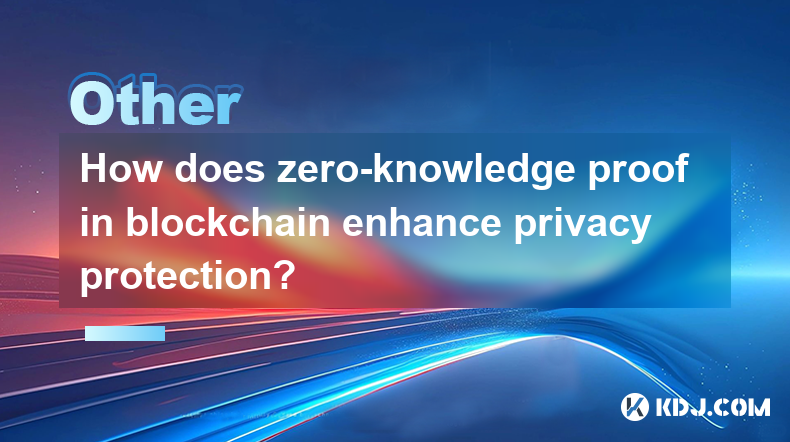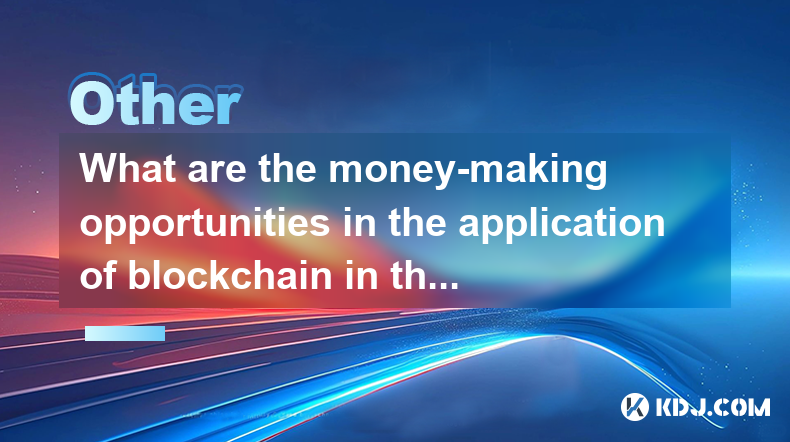-
 Bitcoin
Bitcoin $78,748.0325
-5.87% -
 Ethereum
Ethereum $1,601.5786
-11.64% -
 Tether USDt
Tether USDt $0.9995
-0.01% -
 XRP
XRP $1.9278
-10.45% -
 BNB
BNB $563.2751
-4.91% -
 USDC
USDC $1.0002
0.02% -
 Solana
Solana $107.0570
-11.34% -
 Dogecoin
Dogecoin $0.1502
-11.43% -
 TRON
TRON $0.2316
-2.13% -
 Cardano
Cardano $0.5804
-11.15% -
 UNUS SED LEO
UNUS SED LEO $8.8730
-2.96% -
 Chainlink
Chainlink $11.4151
-11.57% -
 Toncoin
Toncoin $2.9503
-9.14% -
 Stellar
Stellar $0.2279
-10.05% -
 Shiba Inu
Shiba Inu $0.0...01147
-7.08% -
 Avalanche
Avalanche $16.2365
-8.51% -
 Sui
Sui $1.9405
-12.37% -
 Hedera
Hedera $0.1418
-12.64% -
 MANTRA
MANTRA $6.1017
-2.53% -
 Polkadot
Polkadot $3.6809
-7.16% -
 Bitcoin Cash
Bitcoin Cash $275.5230
-9.51% -
 Litecoin
Litecoin $70.9988
-14.40% -
 Dai
Dai $1.0002
0.00% -
 Ethena USDe
Ethena USDe $0.9989
-0.03% -
 Bitget Token
Bitget Token $4.1440
-7.11% -
 Pi
Pi $0.5972
-6.51% -
 Monero
Monero $200.6546
-6.35% -
 Hyperliquid
Hyperliquid $10.5782
-12.35% -
 Uniswap
Uniswap $5.1904
-11.74% -
 OKB
OKB $53.0659
0.93%
How does zero-knowledge proof in blockchain enhance privacy protection?
Zero-knowledge proofs (ZKPs) enhance blockchain privacy by verifying transaction validity without revealing sensitive data, enabling secure, private transactions and applications like anonymous voting and verifiable credentials.
Mar 02, 2025 at 02:55 am

How Does Zero-Knowledge Proof in Blockchain Enhance Privacy Protection?
Key Points:
- Zero-knowledge proofs (ZKPs) allow a prover to convince a verifier that a statement is true without revealing any information beyond the truth of the statement itself. This is crucial for enhancing privacy in blockchain transactions.
- Different types of ZKPs exist, each with its own strengths and weaknesses regarding computational efficiency and proof size. The choice of ZKP impacts the scalability and usability of a blockchain system.
- Integrating ZKPs into blockchain requires careful consideration of the specific application and the trade-offs between privacy, security, and performance. Implementation challenges include ensuring the integrity of the proof generation and verification processes.
- The application of ZKPs in blockchain extends beyond simple transaction privacy, encompassing areas like verifiable credentials, anonymous voting systems, and secure multi-party computation.
How Zero-Knowledge Proofs Enhance Privacy Protection in Blockchain:
- Understanding the Core Concept: At the heart of blockchain technology lies the concept of transparency. All transactions are recorded on a public ledger, creating a permanent and auditable history. While this transparency is a strength in terms of security and trust, it also presents a significant privacy challenge. Zero-knowledge proofs (ZKPs) offer a solution by enabling users to prove the validity of a transaction without revealing any unnecessary information. Imagine proving you possess a certain amount of cryptocurrency without disclosing the exact balance or the addresses involved. This is precisely what ZKPs allow. The fundamental principle is that the verifier can be completely convinced of the truth of a statement (e.g., "I have sufficient funds to complete this transaction") without learning anything beyond the statement's validity. This is achieved through cryptographic techniques that create a mathematical proof of the statement's truth without revealing any underlying data. The proof itself is verifiable, meaning the verifier can independently confirm its validity without needing access to the private information used to generate it. The security of ZKPs rests on the underlying cryptographic assumptions, which are rigorously studied and generally considered secure against known attacks. The strength of these assumptions directly impacts the security of the privacy afforded by the ZKP.
Types of Zero-Knowledge Proofs and Their Implications: Several types of ZKPs exist, each with its own characteristics affecting their suitability for different blockchain applications. These include:
- ZK-SNARKs (Zero-Knowledge Succinct Non-Interactive Arguments of Knowledge): ZK-SNARKs are highly efficient in terms of proof size and verification time. They are particularly well-suited for applications where scalability is paramount, such as large-scale blockchain networks. However, they require a trusted setup, which introduces a potential security risk if the setup is compromised. The trusted setup involves generating cryptographic parameters that are essential for generating and verifying ZK-SNARKs. If these parameters are compromised, the entire system's security could be at risk. This necessitates careful planning and execution of the trusted setup process, often involving multiple independent parties to mitigate the risk. The computational overhead of generating ZK-SNARKs can be substantial, although recent advancements have significantly improved their efficiency. The complexity of implementing and deploying ZK-SNARKs necessitates specialized expertise and robust infrastructure.
* **ZK-STARKs (Zero-Knowledge Scalable Transparent Arguments of Knowledge):** ZK-STARKs overcome the trusted setup requirement of ZK-SNARKs, making them more transparent and arguably more secure. They are also highly scalable, but generally have larger proof sizes and higher verification times compared to ZK-SNARKs. The transparent nature of ZK-STARKs eliminates the need for a trusted setup, thus reducing the potential for single points of failure. This makes them a more attractive option in scenarios where trust is a significant concern. However, the larger proof sizes and higher verification times can impact the scalability of the system, particularly in resource-constrained environments. The increased computational requirements for both proof generation and verification need to be carefully considered when deploying ZK-STARKs in blockchain systems.
* **Bulletproofs:** Bulletproofs offer a good balance between efficiency and security. They are relatively efficient in terms of proof size and verification time, and they do not require a trusted setup. They are a viable alternative to both ZK-SNARKs and ZK-STARKs, particularly for applications where a balance between efficiency and security is prioritized. The design of Bulletproofs makes them suitable for a wide range of applications, offering a good compromise between the characteristics of ZK-SNARKs and ZK-STARKs. However, the specific efficiency gains compared to other ZKPs may vary depending on the specific implementation and application context.
Integrating ZKPs into Blockchain Systems: Integrating ZKPs into existing or new blockchain systems presents several challenges.
- Scalability: The computational cost of generating and verifying ZKPs can be significant, particularly for complex statements. This can impact the scalability of the blockchain network if not carefully managed. Optimization techniques and hardware acceleration are crucial for mitigating this issue. Efficient implementations are vital to ensure the practicality of using ZKPs on a large scale. The choice of the specific ZKP algorithm significantly influences the scalability of the system. ZK-SNARKs, for example, generally offer better scalability than ZK-STARKs in terms of verification time, but at the cost of a trusted setup.
* **Security:** The security of the entire system relies on the cryptographic soundness of the chosen ZKP scheme. Any vulnerabilities in the underlying cryptographic primitives can compromise the privacy and security of the blockchain. Rigorous security audits and formal verification are essential to ensure the robustness of the ZKP implementation. The security of ZKPs is inherently tied to the security of the underlying cryptographic primitives. Any weakness in these primitives could potentially lead to vulnerabilities in the ZKP system, making rigorous analysis and auditing crucial. The security also depends on the proper implementation of the ZKP scheme within the blockchain architecture.
* **Usability:** ZKPs can be complex to implement and use. User-friendly interfaces and tools are needed to make them accessible to a wider range of developers and users. The complexity of ZKPs can present a barrier to adoption. Simple, intuitive interfaces and well-documented APIs are needed to make the integration process smoother for developers. Education and training resources can also help bridge the knowledge gap and facilitate wider adoption. Usability is crucial for the success of any technology, and ZKPs are no exception.
Applications Beyond Transaction Privacy: The applications of ZKPs in blockchain extend far beyond simply enhancing transaction privacy.
- Verifiable Credentials: ZKPs can be used to create and verify digital credentials without revealing the underlying data. This has implications for identity management, access control, and various other applications requiring secure and private authentication. ZKPs enable individuals to prove their eligibility for certain services or access levels without disclosing sensitive personal information. This is crucial for maintaining privacy while still ensuring authenticity and validity of credentials.
* **Anonymous Voting Systems:** ZKPs can enable secure and private voting systems where the votes are verifiable without revealing the identity of the voter. This helps ensure the integrity of the election process while protecting the privacy of individual voters. ZKPs are particularly well-suited for secure electronic voting systems due to their ability to verify votes without revealing voter identity. This can significantly enhance the trust and transparency of election processes.
* **Secure Multi-Party Computation (MPC):** ZKPs can be used to enable secure computation among multiple parties without revealing their individual inputs. This has applications in various fields, including financial transactions, data analysis, and collaborative research. ZKPs facilitate the execution of computations on sensitive data without requiring any party to reveal their private inputs. This enables collaborative projects and secure data analysis without compromising the privacy of individual contributors.
FAQs:
Q: What are the limitations of using zero-knowledge proofs in blockchain?
A: While ZKPs offer significant privacy advantages, they are not without limitations. The computational overhead can be substantial, especially for complex proofs, impacting transaction speed and scalability. The complexity of implementation also presents a challenge, requiring specialized knowledge and potentially increasing development costs. Furthermore, the security of ZKPs depends on the underlying cryptographic assumptions, which, while generally considered secure, are subject to ongoing research and potential future breakthroughs.
Q: Are zero-knowledge proofs truly private? Can they be broken?
A: The privacy offered by ZKPs is based on the cryptographic hardness of the underlying mathematical problems. Currently, there are no known efficient methods to break well-implemented ZKPs. However, like all cryptographic systems, they are not unbreakable. Advances in cryptography or the discovery of new algorithms could potentially weaken or break existing ZKP schemes. Therefore, ongoing research and security audits are crucial to ensure the continued robustness of ZKP implementations. The "zero-knowledge" aspect refers to the fact that the verifier learns nothing beyond the validity of the statement being proved. It doesn't guarantee absolute unbreakability, but rather a high level of assurance based on established cryptographic principles.
Q: How do zero-knowledge proofs compare to other privacy-enhancing technologies in blockchain?
A: Zero-knowledge proofs are distinct from other privacy-enhancing technologies such as ring signatures, confidential transactions, and homomorphic encryption. While these techniques also offer privacy benefits, ZKPs provide a more versatile and powerful approach, enabling the verification of complex statements without revealing any unnecessary information. Other techniques often have limitations in terms of scalability or the complexity of the statements they can verify. ZKPs, however, can be tailored to a wider range of applications, allowing for more nuanced control over the information revealed during verification.
Q: What are the future prospects of zero-knowledge proofs in blockchain?
A: The future of ZKPs in blockchain is promising. Ongoing research is focused on improving their efficiency, scalability, and usability. We can expect to see wider adoption of ZKPs in various blockchain applications, leading to enhanced privacy and security in decentralized systems. The development of new ZKP schemes and optimization techniques will likely drive further innovation in this area. As the technology matures, it is expected to become increasingly integrated into mainstream blockchain solutions, further enhancing the privacy and security of blockchain-based applications.
Disclaimer:info@kdj.com
The information provided is not trading advice. kdj.com does not assume any responsibility for any investments made based on the information provided in this article. Cryptocurrencies are highly volatile and it is highly recommended that you invest with caution after thorough research!
If you believe that the content used on this website infringes your copyright, please contact us immediately (info@kdj.com) and we will delete it promptly.
- AVAX Price Eyes Rebound To As High As $44
- 2025-04-07 09:15:12
- U.S. Representatives Zach Nunn (R-Iowa) and Jim Himes (D-Conn.) reintroduced a bill to help combat illicit finance and terrorist financing on digital asset platforms
- 2025-04-07 09:15:12
- Binance Coin (BNB) Price Prediction: Targeting $676 as Bears Consolidate Below $640
- 2025-04-07 09:10:13
- US Seizes $201400 in Cryptocurrency Linked to Hamas Financing
- 2025-04-07 09:10:13
- Grayscale Files a Proposal to List the Grayscale AVAX Trust as a Spot ETF
- 2025-04-07 09:05:13
- If you could swap any U.S. coin design with a historical figure or symbol not yet featured, what would it be and why?
- 2025-04-07 09:05:13
Related knowledge

Is the ranking of Chinese blockchain apps real and reliable?
Apr 04,2025 at 09:01pm
The ranking of Chinese blockchain apps has become a topic of interest for many in the cryptocurrency community, as it provides insights into the popularity and adoption of blockchain technology within China. However, the reliability and authenticity of these rankings are often questioned. This article aims to delve into the factors that influence these ...

What are the future development trends of blockchain game development?
Apr 03,2025 at 05:00am
Blockchain technology has revolutionized various industries, and gaming is no exception. As we look to the future, several trends are set to shape the development of blockchain games. These trends not only promise to enhance the gaming experience but also to integrate blockchain technology more seamlessly into the gaming ecosystem. Let's explore these t...

What are the high-return opportunities for blockchain investments?
Apr 05,2025 at 02:35pm
Blockchain technology has revolutionized the financial world, offering numerous high-return investment opportunities. These opportunities span various sectors within the cryptocurrency ecosystem, including cryptocurrencies, decentralized finance (DeFi), non-fungible tokens (NFTs), and blockchain startups. Each of these areas presents unique risks and re...

What are the maintenance costs of blockchain system development?
Apr 03,2025 at 06:07pm
The maintenance costs of blockchain system development are multifaceted and depend on various factors. These costs can include technical maintenance, security updates, infrastructure expenses, and personnel costs. Understanding these elements is crucial for anyone planning to develop or maintain a blockchain system. Technical MaintenanceTechnical mainte...

What are the money-making models of blockchain games?
Apr 04,2025 at 02:00pm
Blockchain games have emerged as a revolutionary way for players to earn real money while enjoying their favorite pastime. These games leverage the power of blockchain technology to create unique money-making models that benefit both the players and the developers. In this article, we will explore the various money-making models of blockchain games and ...

What are the money-making opportunities in the application of blockchain in the field of Internet of Things?
Apr 05,2025 at 10:35pm
The integration of blockchain technology with the Internet of Things (IoT) presents numerous money-making opportunities. Blockchain, with its decentralized and secure nature, can revolutionize how IoT devices interact, manage data, and conduct transactions. This article will explore various avenues where entrepreneurs, developers, and investors can capi...

Is the ranking of Chinese blockchain apps real and reliable?
Apr 04,2025 at 09:01pm
The ranking of Chinese blockchain apps has become a topic of interest for many in the cryptocurrency community, as it provides insights into the popularity and adoption of blockchain technology within China. However, the reliability and authenticity of these rankings are often questioned. This article aims to delve into the factors that influence these ...

What are the future development trends of blockchain game development?
Apr 03,2025 at 05:00am
Blockchain technology has revolutionized various industries, and gaming is no exception. As we look to the future, several trends are set to shape the development of blockchain games. These trends not only promise to enhance the gaming experience but also to integrate blockchain technology more seamlessly into the gaming ecosystem. Let's explore these t...

What are the high-return opportunities for blockchain investments?
Apr 05,2025 at 02:35pm
Blockchain technology has revolutionized the financial world, offering numerous high-return investment opportunities. These opportunities span various sectors within the cryptocurrency ecosystem, including cryptocurrencies, decentralized finance (DeFi), non-fungible tokens (NFTs), and blockchain startups. Each of these areas presents unique risks and re...

What are the maintenance costs of blockchain system development?
Apr 03,2025 at 06:07pm
The maintenance costs of blockchain system development are multifaceted and depend on various factors. These costs can include technical maintenance, security updates, infrastructure expenses, and personnel costs. Understanding these elements is crucial for anyone planning to develop or maintain a blockchain system. Technical MaintenanceTechnical mainte...

What are the money-making models of blockchain games?
Apr 04,2025 at 02:00pm
Blockchain games have emerged as a revolutionary way for players to earn real money while enjoying their favorite pastime. These games leverage the power of blockchain technology to create unique money-making models that benefit both the players and the developers. In this article, we will explore the various money-making models of blockchain games and ...

What are the money-making opportunities in the application of blockchain in the field of Internet of Things?
Apr 05,2025 at 10:35pm
The integration of blockchain technology with the Internet of Things (IoT) presents numerous money-making opportunities. Blockchain, with its decentralized and secure nature, can revolutionize how IoT devices interact, manage data, and conduct transactions. This article will explore various avenues where entrepreneurs, developers, and investors can capi...
See all articles





















































































